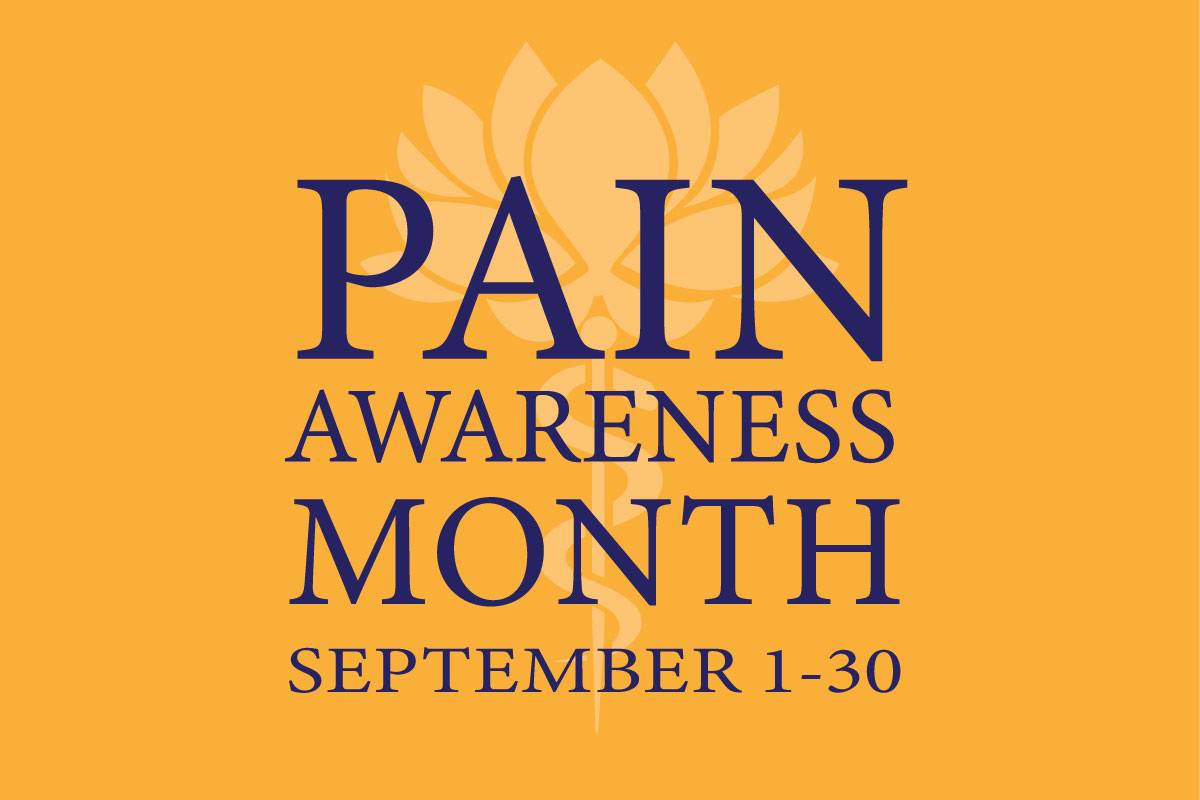
5 Ways We Can Keep Your Immune System Strong
December 10, 2025/by Kaplan Center
Want to Take Your Workout to the Next Level Next Year? These Tips Can Help
December 8, 2025/by Kaplan Center
Dr. Kaplan’s Dos and Don’ts of the Holiday Season
December 3, 2025/by Kaplan Center
Let’s Talk Webinar – A Root Cause Q&A
December 2, 2025/by Kaplan Center
Navigating Holiday Meals with Gut Issues: Simple Tips for a Comfortable Season
December 1, 2025/by Chardonée Donald, MS, CBHS, CHN, CNS, LDN
Craniosacral Therapy for TMJ | Say Goodbye to the Daily Grind
November 19, 2025/by Patricia Alomar, M.S., P.T.
From Compassionate Care to Personal Healing: A Letter to My Patients
November 18, 2025/by Kaplan Center
8 Steps to a Healthier Gut—and a Longer, Healthier Life
November 18, 2025/by Kaplan Center
Mid-Life Irritability & Fatigue Improved by Hormonal Balancing
November 13, 2025/by Lisa Lilienfield, MD
From Challenges to Change: Dr. Kaplan on Healthcare’s Biggest Challenges
October 29, 2025/by Kaplan Center
Overlooked Dangers of Mold Exposure and How to Stay Safe – Dr. Kaplan Talks to WUSA9
October 27, 2025/by Kaplan Center
Let’s ‘Fall’ Into Wellness: A Nutritionist-Approved Immune-Boosting Recipe for Cold and Flu Season
October 13, 2025/by Chardonée Donald, MS, CBHS, CHN, CNS, LDN
PANS/PANDAS – When Sudden Symptoms Signal Something More
October 9, 2025/by Kaplan Center
Beating Burnout, A Nutritionist’s Perspective
October 1, 2025/by Chardonée Donald, MS, CBHS, CHN, CNS, LDN
3 Things That Can Happen After Stopping GLP-1s
September 11, 2025/by Chardonée Donald, MS, CBHS, CHN, CNS, LDN
What Families Need to Know About COVID and Flu Season
September 3, 2025/by Kaplan Center
September is Pain Awareness Month
September 1, 2025/by Kaplan Center
Dr. Kaplan Spoke to Northern Virginia Magazine About COVID, Flu, and Immunity — Here’s What You Should Know
August 14, 2025/by Kaplan Center
“Why Do I Feel Like Crap?”: The Overlap Between Long COVID and Perimenopause
July 30, 2025/by Kaplan Center
Why People Are Turning to EMDR (and Why You Might Want to Too)
July 23, 2025/by Kaplan CenterAre you looking to improve your overall wellness?
Personalized care you can trust.
Our integrative, non-surgical treatment approach is highly successful in maintaining wellness and also treating chronic pain and illness. For more than 30 years, we have delivered superior, cutting-edge health care in the Washington, DC area.
QuickLinks
Contact Information
Tel: 703-532-4892
Fax: 703-237-3105
6829 Elm Street, Suite 300
McLean, Virginia 22101
Map It
Hours of Operation
Mon – Thu : 8 am – 5 pm, ET
Fri : 8 am – 12 pm, ET
How to Help Someone Who Exhibits Destructive Behavior
/in Mental Health/by Jodi Brayton, LCSWQ: Someone near and dear to me suffers from such powerful, long-standing shame that he cannot, or won’t, admit engaging in behaviors that are destructive to his personal relationships (e.g., verbal abuse). Is there any way to confront him gently, in a way that helps him feel safe so that he and his loved ones can start healing their respective relationships?
Jodi Brayton, L.C.S.W., M.S.W.:
This is such a great question on many levels. It involves a universal emotion – to be human is to feel shame – and the very wording of the question shows that the writer already understands the antidote to shame: love, connection, and compassion. I like that the writer gets the fact that destructive behavior should be confronted (in a safe way) in order to begin healing any relationship. There are some very thoughtful experts exploring current research on the issues of shame and compassion and I want to share some information that may be useful to you.
One of my favorite writers from a psycho-therapeutic point of view is Janina Fisher, Ph.D., a therapist who looks at the shame and self-loathing associated with childhood trauma from a neurobiological perspective. Fisher does a beautiful job of explaining that many of our negative behaviors are, or were at one time, beneficial adaptations to traumatic circumstances. Anger, for instance, may be a self-protective maneuver designed to push people away before they can hurt us. She explains how shame and perfectionism are adaptive strategies that drive responses such as hypervigilance, automatic obedience, and total submission; strategies that help young victims survive abuse[i].
The dilemma with confronting people who struggle with shame is that even the kindest, most gentle approach can confirm their worst beliefs about themselves. The thought, “it’s my fault,” can activate areas of the brain that lead to emotional and autonomic reactivity, according to Fisher, which may explain reactions that are destructive to personal relationships, such as verbal abuse.
Curiosity and mindfulness, on the other hand, tend to activate the medial prefrontal cortex, the part of the brain that regulates such emotional and autonomic reactivity[ii]. The job of a therapist is to help clients remain in the medial prefrontal cortex part of their brain because when we are curious and mindful we find meaning and gain perspective. Your friend is more likely to accept a recommendation of therapy if you come from the approach that he is not where he wants to be. The website janinafisher.com has several informative articles that can be downloaded for free.
Questions? Give Us a Call!
703-532-4892 x2
Understanding the hard science behind behavior can help many people recognize and accept the need for change and there is fascinating research on the physiology behind the healing power of self-compassion. It seems that our body responds to an emotional attack of self-criticism just as it would to the physical threat of having a gun pointed in our direction. The fight or flight response is triggered and the stress hormone cortisol is released in order to mobilize our body to avoid or confront the threatening situation. We all know that too much cortisol over a long period of time can be destructive to our bodies; however, recent research shows that generating feelings of self-compassion can actually decrease those cortisol levels and increase the release of the hormone oxytocin in our system. When we increase the level of the oxytocin we increase feelings of calm, trust, safety, generosity, and closeness to others – all of which are needed to counter the painful emotion of shame[iii].
Kristen Neff, Ph.D., one of the leading researchers on the physiology of self-compassion, has a website – self-compassion.org – that many of my clients find useful. It offers several guided meditations and various exercises designed to help people increase their self-compassion skills. There’s also a self-administered test that measures the elements of self-compassion, as well as the things that hinder our self-compassion, such as self-judgment, isolation, and over-identification. You can recommend this site not only to counter the effects of shame but to anyone who wants to live a more contented and fulfilling life.
The last writer I want to mention is a researcher who has an exceptional ability to inspire people to go to those deep, dark places of shame and fear. Brené Brown, Ph.D., believes that we begin healing by sharing our difficult stories with appropriate others in order to feel worthy, connected, and lovable. She gave a 2010 TEDx Houston talk on the power of vulnerability that was one of the most popular talks on TED.com. She followed up with a second talk in 2012 called Listening to Shame, and together these talks have received over 25 million views. They are chock-full of humor, humanity, and interesting information and you can recommend these talks based on the entertainment value alone.
Another thing I hope you consider reading, and/or offering to your friend, is Brené Brown’s book, The Gifts of Imperfection: Let Go of Who You Think You’re Supposed to Be and Embrace Who You Are. Brown has devoted most of her professional career to the study of human vulnerability, courage, worthiness, and shame, and she really leads by example in this book. In order to help others find the courage to explore their own feelings of inadequacy, Brown fearlessly, and wholeheartedly shares hers. This leaves the reader with a sense of connection to our common humanity, as opposed to the feeling of isolation and alienation that results from keeping things hidden. Many people find this book a valuable tool for self-exploration.
The concept that permeates all the works cited above – and that can help your friend find the non-judgmental state of mind he’ll need in order to observe his own thoughts and behavior in a safe way – is mindfulness. Suggesting mindful practices, such as meditation, prayer, and journaling (especially a gratitude journal) could prove most valuable in helping your friend gain perspective and find a sense of peace even in the most complicated and difficult situations.
Thank you so much for this opportunity to share this information. Your question is important and the task is a challenging one, but Brené Brown sums up what is at risk with the following quote[iv]:
“Owning our story can be hard but not nearly as difficult as spending our lives running from it. Embracing our vulnerabilities is risky but not nearly as dangerous as giving up on love and belonging and joy – the experiences that make us the most vulnerable. Only when we are brave enough to explore the darkness will we discover the infinite power of our light.”
– Jodi Brayton, L.C.S.W., M.S.W.
We are here for you, and we want to help.
Our goal is to return you to optimal health as soon as possible. To schedule an appointment please call: 703-532-4892 x2
[i] Fisher, J. Working with the Neurobiological Legacy of Early Trauma: Paper presented at the Annual Conference, American Mental Health Counselors July, 2003.
[ii] Fisher, J. Brain to Brain: The Therapist as Neurobiological Regulator. Psychotherapy Networker. 34:1, January 2010.
[iii] Neff, K. D. (2012). The science of self compassion. In C. Germer & R. Siegel (Eds.) Compassion and Wisdom in Psychotherapy. New York: Guilford Press.
[iv] Brown, B. (2010). The Gifts of Imperfection: Let Go of Who You Think You’re Supposed to Be and Embrace Who You Are (p. 6). Center City, Minnesota: Hazelden Publishing.
Is It Safe to Keep Taking Your Pain Reliever?
/in Treatments/by Kaplan CenterWhy No Pain Pill Is Totally Safe
By Julia Westbrook
We break down the hidden side effects of three common pain meds.
It’s time to reevaluate how we deal with pain. Pain meds, even the ones that are easily available or ones we think of as safe, can have unintended consequences that take a toll on your body.”We think they’re safe because they’re available over-the-counter, and we consume them like they’re candy,” says Gary Kaplan, DO, author of Total Recovery: A Revolutionary New Approach to Breaking the Cycle of Pain and Depression. “But we need to be much more thoughtful in how we handle our aches and pains.”
Before you reach into the medicine cabinet, consider these lesser-known side effects of pain pills.
Acetaminophen
Acetaminophen (the ingredient found in Tylenol) seems to have the fewest drawbacks, but that doesn’t mean it’s perfectly safe. “It’s OK as long as you do not exceed the recommended dose,” says Dr. Kaplan. “When you exceed the recommended dose, the real risk becomes liver toxicity and damage to the liver.” He stresses that this is why you cannot drink alcohol when taking acetaminophen.
In addition to risks of liver toxicity, new research suggests that acetaminophen blunts not only your pain but also your emotions. In a study from Ohio State University, those who took acetaminophen did not experience the same emotional highs or lows as people taking a placebo.
Pregnant women should also be wary of acetaminophen. “What we thought were OK medications for pregnant women to be taking probably were not,” says Dr. Kaplan.
He explains that boys exposed to acetaminophen in the womb are at higher risk for undescended testes, leading to a higher risk for low sperm count and, potentially, in the long term, testicular cancer. The highest risk for this is during the second trimester of pregnancy, and it can occur with even low, intermittent use.
NSAIDs
Non-steroidal anti-inflammatory drugs, or NSAIDs are easily available over-the-counter, but they come with a long list of health concerns. “These medications that we’ve been told are completely safe, and we take them without a second thought, are, in fact, not completely safe and need to be used with great discretion,” says Dr. Kaplan. “They need to be taken only when needed.”
“The thing that everyone thinks about is the risk for gastric ulcers and bleeding from the gastrointestinal tract,” says Dr. Kaplan. “But the bigger risk is that, with regular use of these medications, we see small intestine ulcers that occur in upwards of 80 percent of people taking these medications regularly. This is going to cause a massive disruption of the gut flora.”
Dr. Kaplan points out that more and more research is coming out showing the impact of the gut on the brain. “So a healthy gut is absolutely essential to having a healthy brain,” he says. “If we’re taking medications that are causing ulcerations in the small intestine, completely screwing up our gut flora and completely screwing up our ability to absorb proper nutrients, when all is said and done, these are not good medications to be taking on a regular basis.”
Heart disease is another health concern associated with NSAIDs. The U.S. Food and Drug Administration issued a warning that NSAIDs can increase the risk for heart attack or stroke, even in otherwise healthy individuals.
Dr. Kaplan says that using these medications less than three times per week is probably safe, but more than that and you are taking a real risk.
And if you have a heart condition and are taking meds for that condition, definitely consult with your doctor about the potential for drug-drug interactions. For instance, Dr. Kaplan explains that if you’re taking aspirin to prevent a heart attack and then take ibuprofen for pain, the ibuprofen will negate the aspirin.
NSAIDs may also interact with antidepressants, increasing the risk of bleeding in the brain, or hemorrhaging, Korean researchers found.
Other risks of taking NSAIDs include increased sun sensitivity and potential kidney damage.
NSAIDs also have risks for pregnant women and babies during all three trimesters, says Dr. Kaplan. Taken during the first trimester, NSAIDs increase the risk for miscarriage. During the second trimester, NSAIDs can have similar effects on baby boys as acetaminophen. And during the third trimester, taking NSAIDs can lead to congenital heart issues in the newborn.
Opioids
The health impacts of prescription opioids are more well known, yet there are people who do take them regularly. “There is a time and a place for opioid medications, but it needs to be very limited and very thoughtful,” says Dr. Kaplan. “There are those with chronic pain on opioid medications, but this is really an admission of failure on our part in our ability to solve the problem because the opioids don’t fix the underlying problem, they just cover up the pain.”
Problems with opioids include constipation, low testosterone, and, since opioids are addictive, withdrawal. During pregnancy, they increase the risk for neurotube defects by about 2.2 times and can lead to withdrawal symptoms in the baby as well as preterm birth.
Looking for Alternatives
“Before we pop a pill, we need to stop and think about what may be causing the pain and what we can do to relieve the pain,” says Dr. Kaplan. Rather than covering up the pain, therapies that include icing, stretching, heat, acupuncture, massage, and physical therapy, eating curcumin-rich turmeric, and taking glucosamine sulfate can help resolve the issue.
“We want to look at how we can fix the problems that have health effects not only at the joint but throughout the entire body,” he adds.
As first seen on RodaleNews.com.
Chronic Fatigue Syndrome aka Myalgic Encephalomyelitis (ME)
/in Featured Press/by Website Administrator